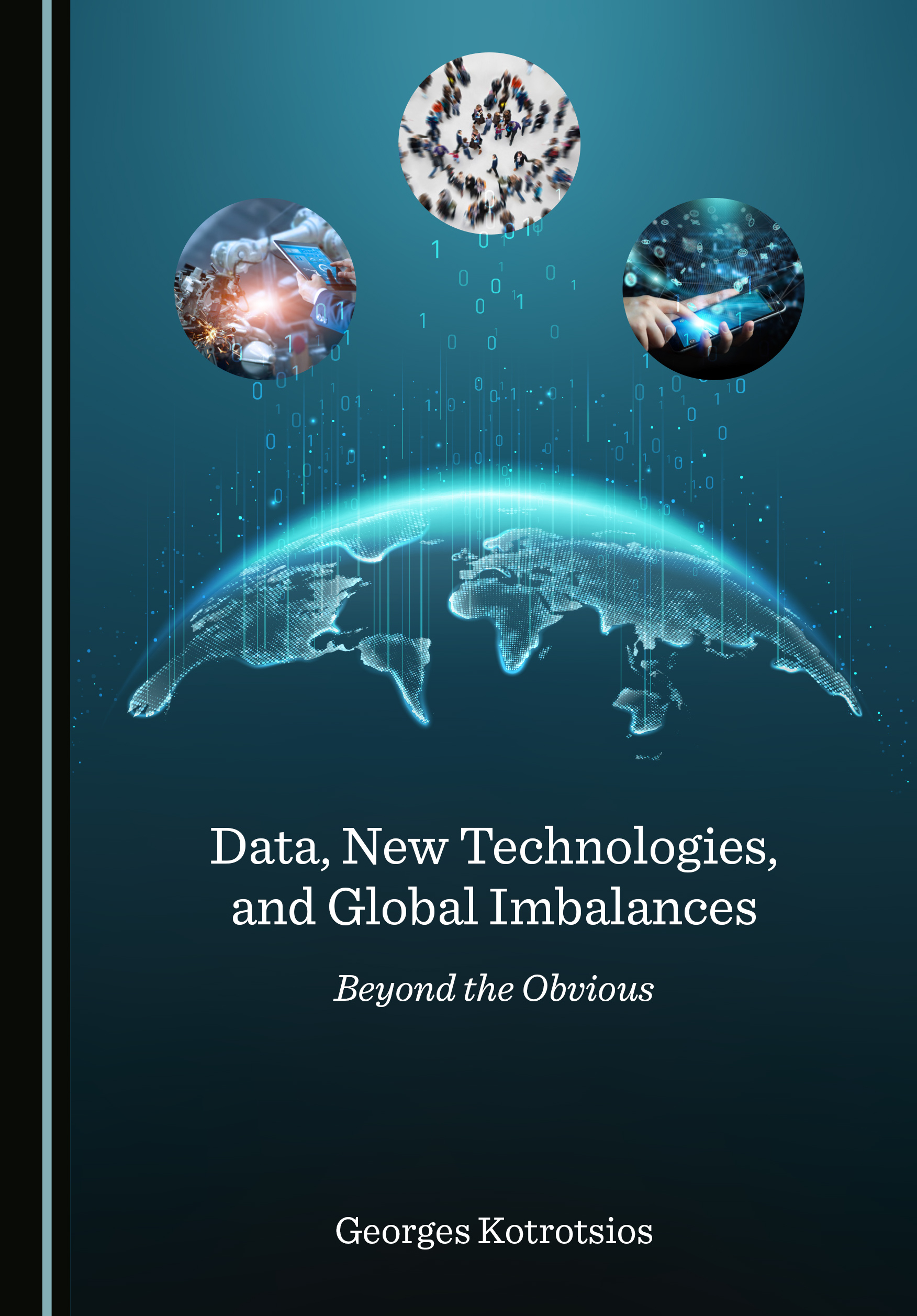Articles of interest
07th June 2021
Book in Focus
Data, New Technologies, and Global Imbalances
Beyond the Obvious

By Georges Kotrotsios
Technology was once considered to be a factor neutral to the economy: its value depended always on its usage, whether good or bad. However, for data, today produced by technological tools, the situation is not the same. It is now common knowledge that data is often referred to as being ‘like gold’. Some even say that it is the ‘oil of the 21st century’. Such comparisons are made because data has an economic value and is, therefore, a real asset. However, data also represents a new type of capital, different from those forms which are embodied by money, real estate, or machinery. An individual, company, or organisation may be the sole owner of such traditional assets, but this is not the case with data. Data is also much more mobile than traditional assets. Because of these specific properties, data acts as a lever for traditional capital. Thus, by its very nature, it is not neutral in economic processes.
Data is at the centre of my book because it is already at the centre of our lives. It is a kind of super accelerator in the interaction between technology, productive activities, and society. This interaction has existed for years, but never previously with the intensity we know today. Data acts as a lubricator in the gears of this process. Even if it is not central to the life of, say, a farmer, the ongoing building of industrial empires, based precisely on the value of data, has repercussions for the farmer’s activities, and even for their daily life. This phenomenon is, in a way, a destabilising factor in our societies. It is increasing day by day, precisely because of the growing dynamic of data-driven interactions between technologies and society.
Many private companies are today already managing data, and doing it quite well. However, how are we going to be able to regulate, in a global economy, access to a resource, data, which, by its very nature, is also global? How can we do this through legislation, which, by definition, is limited to national borders? As such, this book explores the possible creation of a World Trade Organization-type structure, to regulate access to, and use of, data.
We must also face the question of the redistribution of part of this wealth that constitutes ‘data-capital’. Should a sort of tax be introduced on this ‘wealth’? Should we tax this capital, rather than taxing robots, as suggested by law professor Xavier Oberson? Is this even possible? Alternatively, should we look for another way of sharing by allowing access to part of this data-capital to multiple users, with the agreement of those who create it? These are just some of the many questions that, for the moment, remain open...
Learn more: https://www.satw.ch/en/blog/data-new-technologies-and-global-imbalances-beyond-the-obvious
Georges Kotrotsios has dedicated his professional life to the creation of economic and societal value through the application of high-end technology. For the last 10 years, he has served as a member of the Executive Board of CSEM, a major Swiss research and innovation center working on microtechnologies and smart digital systems. He serves on the boards of various national and international bodies closely linked to the exploitation of technologies and to related policies. He holds a PhD in Optoelectronics and an MBA in Management of Technology, and is a member of the Swiss Academy of Engineering Sciences.
Data, New Technologies, and Global Imbalances: Beyond the Obvious is available now in Hardback. Enter the code PROMO25 at the checkout for a 25% discount.










